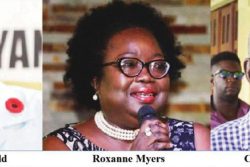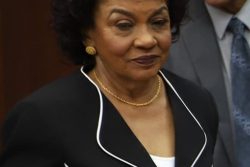Dear Editor,
I have been following with interest the exchange of ideas on the issue of national unity which is so vital for a prosperous Guyana. At the sociological level, there is a fair measure of inter-ethnic cohesion. People in Guyana of all ethnic groups relate to each other with the greatest of cordiality and respect. This speaks well of our maturity as a people despite attempts by some people to take advantage of our diversity to further their own self-interests.
At the political level, class and ideology and not race have always been the dominant factors. The split of the PPP in 1955 was based more on political opportunism rather than on racial considerations. Were race the issue, Jagan would not have enjoyed the support of Afro-Guyanese in the party leadership such as Martin Carter, Rory Westmaas, George Robertson, Fred Bowman, Lionel Jeffrey, Sydney King (Eusi Kwayana), among others, and Burnham would not have enjoyed the support of JP Lachmansingh and other big businessmen, the majority of whom were non-Africans. The party leadership saw the split in ideological terms. That explained why of the 11-non-Indians of the PPP General Council, only three joined with Burnham.
With the passage of time the class unity which was forged by Dr Jagan and the PPP in the early 1950s became somewhat fractured by the intrigues of power-hungry politicians with the support of foreign vested interests, again for political/ideological reasons. The PPP was too much to the left for the liking of western interests and their supporters locally. The removal of the PPP from office in 1953 and 1964 was essentially ideologically driven with a strong class bias.
The point I am seeking to make is that class and not race was, and to a large extent continues to be a dominant factor in our politics. It was the dominance of class interests that led to the assassination of Walter Rodney on June 13, 1980 after he resolutely opposed the anti-working class positions taken by the PNC. The pauperization of the Guyanese working people including the Afro-Guyanese segment of the working class began under the Burnham administration and continued well into the Desmond Hoyte years.
National unity cannot be created in a vacuum. It has to be built around an agreed national framework which must in the first instance be reflective of the democratic aspirations of the Guyanese people and on a broadly agreed programme of national development. It was this difficulty to arrive at an acceptable framework for national development that has led to the failure of earlier attempts to forge national consensus on the way forward for Guyana. The situation was not helped by rigged national elections and the PNC’s insistence that it was the ‘Bolshevik’ party and therefore could not negotiate on equal terms with a ‘Menshevik’ party when the whole world knew otherwise.
It is time for us all to understand the true genesis of our poverty and under-development which has very little if anything to do with race and ethnicity, but more with the promulgation of programmes and policies which are people-centred and development-oriented. This is exactly what the current PPP/C opposition is committed to do, namely to create a society in which there is social justice for all Guyanese regardless of their race or ethnic background.
Yours faithfully,
Hydar Ally




